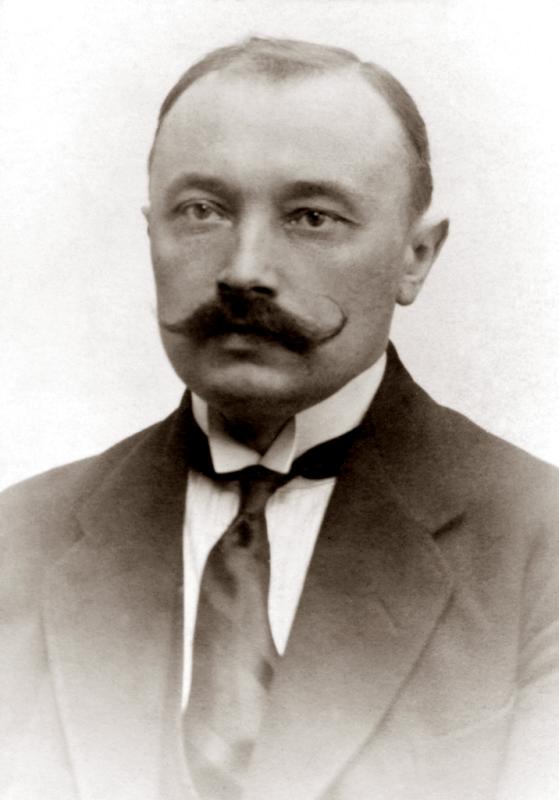|
First Congress Of Lithuanian Women
The First Congress of Lithuanian Women ( lt, Pirmasis lietuvių moterų suvažiavimas) took place on in Kaunas (then part of the Russian Empire, now Lithuania). It was organized by Catholic priests in preparation for the October 1907 election to the third State Duma but discussed only cultural and economic issues. The organizers attempted to invite representatives of different social classes and political affiliations leading to disagreements between socialists and Catholic clergy, and between educated intellectuals and less educated villagers. The congress resolved to establish the Lithuanian Women's Union. However, disagreements between the liberals and the Catholics led to splintering of the women's movement and to the establishment of the Association of Lithuanian Catholic Women in January 1908. The Women's Union was officially established only in 1922. Organization The Lithuanian Women's Association was established in September 1905 during the Russian Revolution in Vilnius. ... [...More Info...] [...Related Items...] OR: [Wikipedia] [Google] [Baidu] |
Kaunas
Kaunas (; ; also see other names) is the second-largest city in Lithuania after Vilnius and an important centre of Lithuanian economic, academic, and cultural life. Kaunas was the largest city and the centre of a county in the Duchy of Trakai of the Grand Duchy of Lithuania and Trakai Palatinate since 1413. In the Russian Empire, it was the capital of the Kaunas Governorate from 1843 to 1915. During the interwar period, it served as the temporary capital of Lithuania, when Vilnius was seized and controlled by Poland between 1920 and 1939. During that period Kaunas was celebrated for its rich cultural and academic life, fashion, construction of countless Art Deco and Lithuanian National Romanticism architectural-style buildings as well as popular furniture, the interior design of the time, and a widespread café culture. The city interwar architecture is regarded as among the finest examples of European Art Deco and has received the European Heritage Label. It contributed to ... [...More Info...] [...Related Items...] OR: [Wikipedia] [Google] [Baidu] |
Cantata
A cantata (; ; literally "sung", past participle feminine singular of the Italian verb ''cantare'', "to sing") is a vocal composition with an instrumental accompaniment, typically in several movements, often involving a choir. The meaning of the term changed over time, from the simple single-voice madrigal of the early 17th century, to the multi-voice "cantata da camera" and the "cantata da chiesa" of the later part of that century, from the more substantial dramatic forms of the 18th century to the usually sacred-texted 19th-century cantata, which was effectively a type of short oratorio. Cantatas for use in the liturgy of church services are called church cantata or sacred cantata; other cantatas can be indicated as secular cantatas. Several cantatas were, and still are, written for special occasions, such as Christmas cantatas. Christoph Graupner, Georg Philipp Telemann and Johann Sebastian Bach composed cycles of church cantatas for the occasions of the liturgical year. ... [...More Info...] [...Related Items...] OR: [Wikipedia] [Google] [Baidu] |
Mykolas Sleževičius
Mykolas Sleževičius (21 February 1882 – 11 November 1939) was a Lithuanian lawyer, political and cultural figure, and journalist. One of the most influential figures in inter-war Lithuania, he served as the prime minister of Lithuania on three occasions. Taking the helm of the government at a difficult time in 1918 and again in 1919, Sleževičius has been credited with preparing Lithuania for the fights to come and for laying the foundations of the fledgling state. Sleževičius was elected to the Lithuanian parliament, initially the Constituent Assembly, later the Seimas, on four occasions. In 1926, as a representative of the Lithuanian Popular Peasants' Union, Sleževičius became the prime minister for a third time. His government introduced important changes aimed at normalizing the situation in Lithuania, but the reforms faced resistance from the Catholic clergy, military officers and the parliamentary opposition. The resistance culminated in a military coup d'état in ... [...More Info...] [...Related Items...] OR: [Wikipedia] [Google] [Baidu] |
Liudvika Didžiulienė
Liudvika Didžiulienė (1856–1925) also known by her pen name Žmona (wife) was a Lithuanian writer and activist during the Lithuanian National Revival. Having published her first story in 1892, she became the first Lithuanian woman writer. Educated at home by her parents and tutors, Didžiulienė did not receive any formal education. Together with her husband Stanislovas Didžiulis, she supported the Lithuanian book smugglers and their home was frequently visited by various Lithuanian activists. She contributed her fiction and articles to various Lithuanian periodicals, collected examples of Lithuanian folklore, educated local residents. In 1896, Didžiulienė moved to Mitau (Jelgava) where she established a dormitory for Lithuanian students and organized Lithuanian cultural evenings, held literary readings and discussions, etc. for the Lithuanian community. When her husband and two sons were sentenced for the participation in the Russian Revolution of 1905, she returned to Lith ... [...More Info...] [...Related Items...] OR: [Wikipedia] [Google] [Baidu] |


